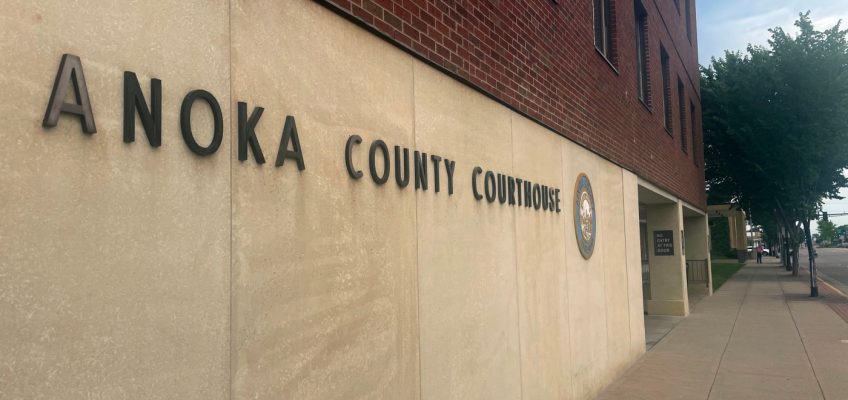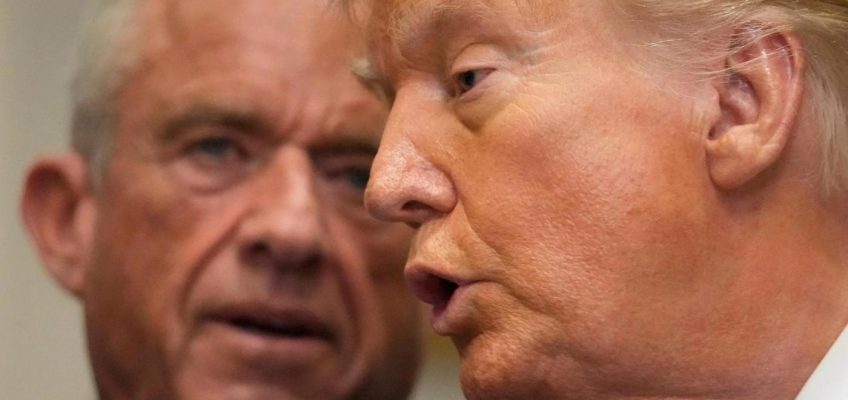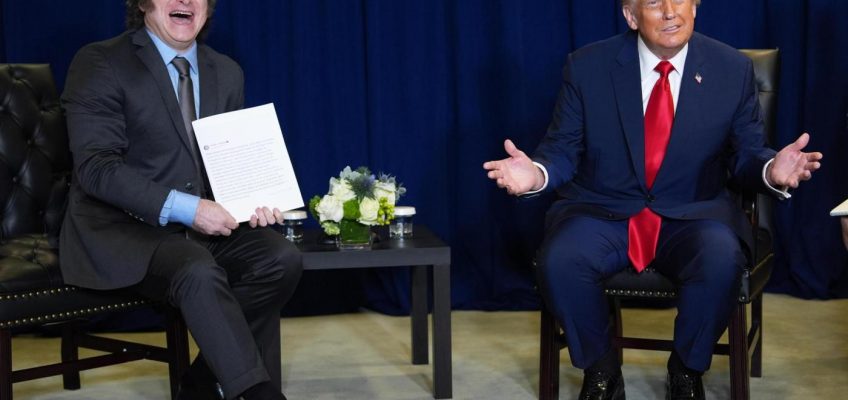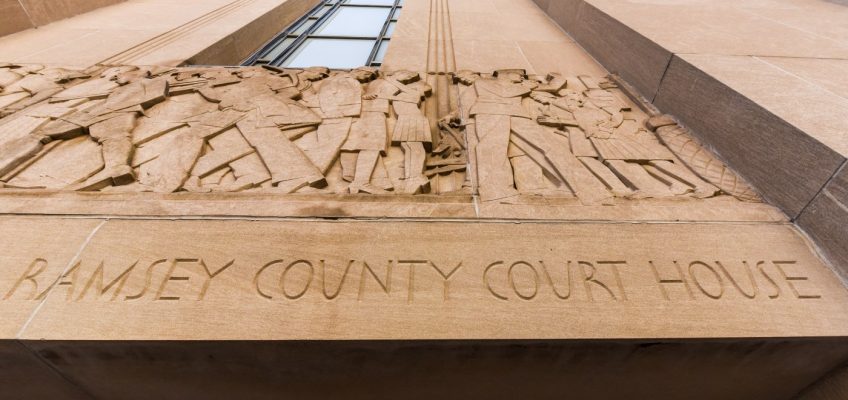The Minnesota Supreme Court has suspended Anoka County Judge John Dehen for nine months without pay after he “abused his position of authority” in a salary dispute involving his court reporter’s salary and for holding a remote juvenile court calendar while riding as a passenger in a moving car headed to a family member’s swim meet.
Anoka County Judge John Dehen (Alex Carroll / Minnesota Judicial Branch)
The Board on Judicial Standards filed a formal complaint against Dehen with the Supreme Court last year. A three-person panel found that Dehen committed three acts of misconduct and recommended that he be censured and suspended from judicial office without pay for six months.
Dehen appealed the findings, and the Supreme Court heard oral arguments in April.
Dehen was first licensed to practice law in Minnesota in 1988. He’s been an elected judge in the Tenth Judicial District since 2010.
According to the Supreme Court’s 72-page order released Tuesday, Dehen’s court reporter, who was in the job since 2017, felt that she was not getting paid enough — and Dehen agreed. Her salary level was at step 2 out of 11, making her one of the lowest paid court reporters in the Judicial Branch.
The court reporter learned that another court reporter in Anoka County was able to get a pay increase by resigning and then being immediately rehired by that court reporter’s judge at a higher step. The Judicial Branch did not have a written policy against that tactic.
“In August 2023, Judicial Branch human resources clarified that the treatment of the other court reporter was contrary to the Judicial Branch’s practices,” the order states. “But Judge Dehen was not immediately made aware of that clarification.”
Dehen’s court reporter resigned in September 2023 and reapplied, a move that Dehen supported.
The Tenth Judicial District Court Administrator then sent Dehen a copy of a 2022 union arbitration decision that concluded judges do not have authority under the collective bargaining agreement to set compensation for their court reporters.
Dehen did not accept that response, and hired her back as his court reporter. He then filed a court order directing the court administrator to immediately start the employment of his court reporter at a step 11 salary.
The Court of Appeals was brought into the mix and disagreed with Dehen, issuing a court order of its own that vacated his order. However, Dehen filed and served a second order to the court administrator directing her to respond and appear at a hearing before him in November 2023 and show cause for not hiring the court reporter at a step 6, the midpoint salary for court reporters.
The Court of Appeals issued a special term order vacating Dehen’s second order.
The Supreme Court concluded that “Judge Dehen’s conduct in [the court reporter compensation dispute] severely undermines the public’s trust in the judicial system, giving the impression that a judge may treat their office as a weapon to be used in professional disputes.”
Moreover, Dehen has “exhibited little if any remorse for his flagrant and egregious actions involving the court reporter dispute,” the Supreme Court’s order said.
Meanwhile, in proceedings before the panel, Dehen did not dispute that he committed misconduct when he held a remote juvenile court calendar while riding in a moving vehicle, acknowledging that it was a “bad idea,” the order said.
However, in a brief to the Supreme Court, Dehen argued that his actions were “not ethical misconduct” and that conducting a remote calendar from his car would be preferable to “either canceling the calendar with less than one day’s notice or finding a replacement judicial officer.”
Related Articles
St. Paul man sentenced to jail for possessing child sexual abuse material
Former DFL lawmaker Nicole Mitchell sentenced to 6 months in jail for burglary
Driver sentenced to workhouse for going 77 mph on St. Paul street, fatally striking pedestrian
St. Paul man sentenced in 2023 shootout at White Bear Lake bar
Letters: If Hamas cared about civilians at all it would release the hostages
The Supreme Court disagreed and cited several rules, including one that states a judge’s duties “take precedence over all of [their] personal and extrajudicial activities.”
“Absent extraordinary circumstances, conducting court from a moving car is not consistent with decorum in proceedings before the court,” the Supreme Court concluded.
On the third issue, the Supreme Court concluded that Dehen’s conduct over at-risk juvenile guardianship proceedings did not constitute misconduct.
If Dehen stops being a judge before his suspension ends, the order says, he will be suspended from practicing of law for a term equal to the balance of his judicial suspension.




